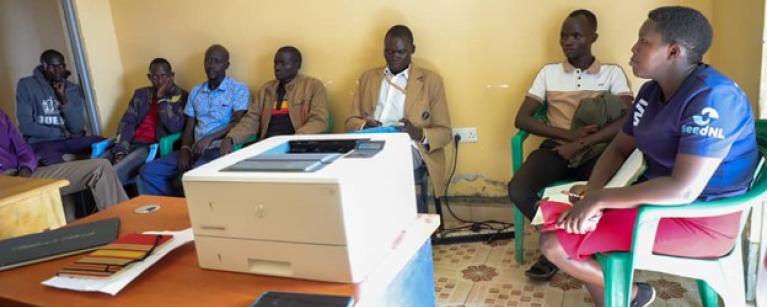In the remote region of Loroo, where educational challenges have long been a pressing concern, a remarkable transformation is underway, thanks to the collaborative efforts of the Resource Rights Africa (RRA), Oxfam, and the local educational structures.
The journey began with a series of comprehensive trainings organized by RRA in partnership with Oxfam, targeting the key stakeholders in the education sector – the School Management Committees (SMCs), Parent-Teacher Associations (PTAs), and the dedicated head teachers. These trainings aimed to empower the participants, equipping them with a deep understanding of their roles and responsibilities in ensuring the success of their schools.
For years, the various educational structures in Loroo had operated in isolation and ignorance, with each group unsure of its precise function and how it could effectively contribute to the overall well-being of the schools. However, the RRA training changed this narrative, shedding light on the intricate web of responsibilities and the importance of collaboration.
The head teachers, once seen as the sole decision-makers, now embrace the expertise and input of the SMCs and PTAs. "During these trainings, the sub-county team, district team, the head teachers, SMCs were taken through their responsibilities concerning school performance," explained the head teacher of St. Francis of Assisi Primary School.
"This means that there will be no conflicts in school since each and everyone knows their roles."
With a clear understanding of their responsibilities, the educational structures have been able to work in harmony, leveraging their unique strengths to address the challenges faced by their schools. The empowered educational structures have also forged strong partnerships with the local community, particularly the Local Councils (LCs). By involving the LCs in their activities, the schools have been able to mobilize community support and increase school enrollment.
"After the trainings, we went to schools and mobilized parents, settling them down and using the same knowledge that we got from the training to encourage and teach parents on why they should keep sending their children to school," shared the Inspector of Schools Amudat
This collaborative approach has yielded remarkable results. In St Francis of Assisi Primary School, for instance, the initial attendance of 50 students quickly grew to 80 after the mobilization efforts. The educational structures have also reached out to the LC1 chairpersons of different villages, ensuring that every child is enrolled and attending school regularly.
The trainings have also inspired the educational structures to tackle the longstanding infrastructure challenges that have hindered educational progress in Loroo. Simongoswa Primary School, for example, only had classrooms up to Primary 4, leading to a culture of early school dropout.
Empowered by the knowledge gained from the RRA trainings, the community has rallied together to raise funds for the construction of a Primary 5 classroom block. This proactive step not only addresses the immediate need but also sets the stage for further expansion, ensuring that children can continue their education without interruption.
"Before these trainings, we used to think that it was the head teacher who was responsible for the low number of students in a school," shared one the by the Inspector of schools Amudat. "But now, with the knowledge from these trainings, we learned that it is everyone's responsibility in the community to ensure that children not only enroll in school but also stay and study consistently." This shift in mindset has been instrumental in driving the community's engagement and commitment to the educational success of their children.
